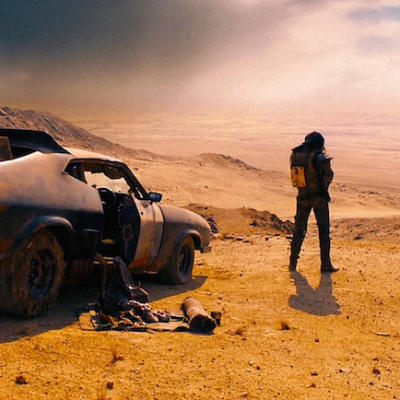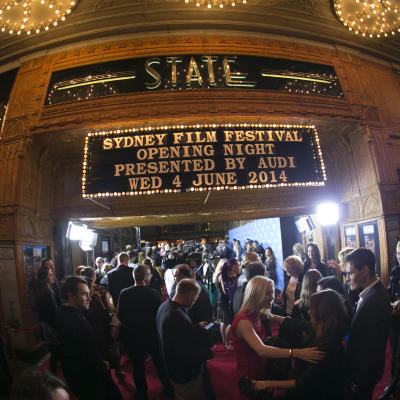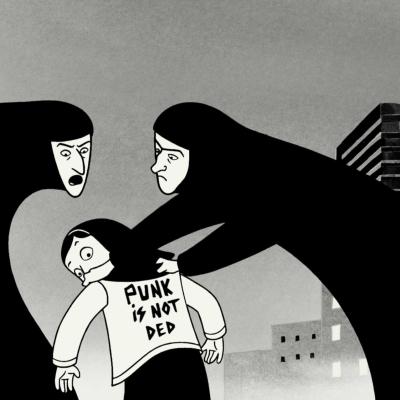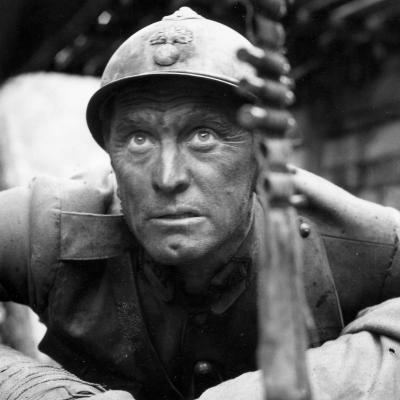Here, for your viewing pleasure next time you’re feeling particularly patriotic, are five Australian cinema masterworks. Not all of them are established classics, but all of them deserve praise for their contribution to our wonderfully unique cinema culture.
Walkabout (1971)
The story goes that Edward Bond’s screenplay for Walkabout (based on James Vance Marshall’s novel of the same name) was only fourteen pages long - much, much shorter than a standard feature screenplay. Bond’s textural, minimalist approach, in the hands of director Nicolas Roeg, becomes something shatteringly beautiful to behold. After their father suffers a breakdown and tries to kill them before taking his own life, two young siblings (played wonderfully by Jenny Agutter and Luc Roeg) find themselves stranded in the outback. Struggling to survive, the two are found by a young Aboriginal boy - a career-making performance by David Gulpilil. Walkabout creates a gripping story without dialogue, forging a real connection between the lost children and the kind Aborigine as they learn to speak with improvised sign language and gestures. Amidst the terrible awe of the harsh Australian landscape is a simple but powerful story about humanism and compassion.
My Brilliant Career (1979)
Director Gillian Armstrong made a big splash all around the world with her second film. My Brilliant Career announced Gillian Armstrong as a major filmmaking talent, with a touch that is distinctively Australian. In taking on a novel by Miles Franklin - one of Australia’s best-loved female authors - Armstrong represented, whether intentionally or not, a kind of feminist sisterhood, particularly when one factored in the incredible performance of the stonily breathtaking Judy Davis as the film’s headstrong and impetuous heroine Sybylla Melvyn. Sybylla desires nothing more than to be a writer, and though there are flirtations with a couple of gents from opposite ends of the social spectrum, including a proposition of marriage from the wealthy Harry Beecham (Sam Neill), the story’s ending is an immensely satisfying one. Even today it is refreshing to see a film in which a female lead does not compromise anything of herself for romance, and we should thank Gillian Armstrong for having given it to us in such a gorgeous form.
Sweetie (1989)
Just like New Zealand exports Split Enz and Russell Crowe, we often like to claim Jane Campion as our own. Many of the New Zealand-born filmmaker’s best works were Australian productions, and among them is Sweetie. Before she made the acclaimed biopic of troubled New Zealand novelist Janet Frame, An Angel at My Table and the Oscar-winning The Piano, Campion established her voice with this alternately sentimental and powerfully dark film. In Sweetie, sisters Kay (Karen Colston) and Sweetie (Genevieve Lemon) are reunited after the latter’s life has fallen apart. The faded, emotionally unstable Sweetie is not unlike Blanche Dubois in Tennessee Williams’ A Streetcar Named Desire (and Viven Leigh in Elia Kazan’s film adaptation thereof), with the under-appreciated Genevieve Lemon giving the performance of a lifetime. The film is a shocking, but sometimes tender and hopeful portrait of the way women are thrown around by society, and the ways through which they cope. It’s one of Jane Campion’s masterpieces.
Samson and Delilah (2009)
Warwick Thornton’s slow, naturalistic, sometimes shocking drama was filmed in and around Alice Springs. The film, which tells the story of two Aboriginal youths - played by first time actors Rowan McNamara and Marissa Gibson - was awarded the prestigious Camera d’Or at the Cannes Film Festival, and with good reason. Samson and Delilah foregoes a concrete plot in favour of a look at the lives of remote Aboriginal communities that often feels more like a documentary than a fictional film. The film’s two central characters long to escape the repetition and boredom of their lives, so they steal a car and head for the city, but once there, they find that they cannot simply pick up a whole new life. The film is often unflinchingly bleak, but there is always a glimmer of hope. Almost like a modern update of Walkabout, its every moment is pushed by the barriers between people and the beautiful moments that break them down. At its heart Samson and Delilah is a love story, but it’s not like any other love story you’ll find.
Animal Kingdom (2010)
It’s rare for a crime drama to be this effective both in terms of plot and emotional power. David Michôd’s gritty crime drama was one of the most successful Australian films in recent years, even scoring an Oscar nomination for the legendary Jacki Weaver as the scheming matriarch Janine “Smurf” Cody. The family over which Smurf presides is a Melbourne crime family, played by a cast of the absolute cream-of-the-crop of Australian talent including Ben Mendelsohn and Joel Edgerton. After losing his mother to a heroin overdose, young Jason Cody (James Frecheville) finds himself deeply involved in the shady dealings of his extended family. Animal Kingdom is a taut, gripping film, with unflinching sense of realism. It’s a crime drama, but with a distinctively suburban Australian twist, refusing to glamourise or idealise any of the goings on the same way a Hollywood film might. You will be on the edge of your seat throughout, gasping at every underhanded manoeuvre, shrinking at the absolute malice that Ben Mendelsohn summons as the cruel Pope, hoping against hope that the film’s young hero comes through in the end.




